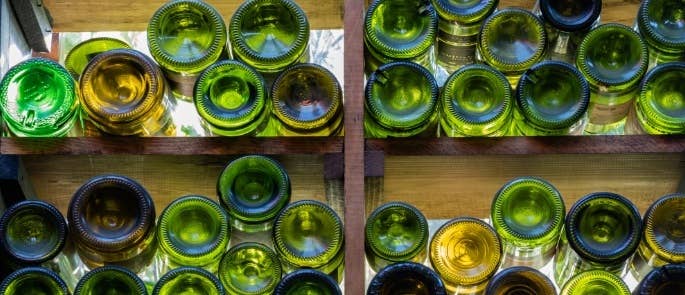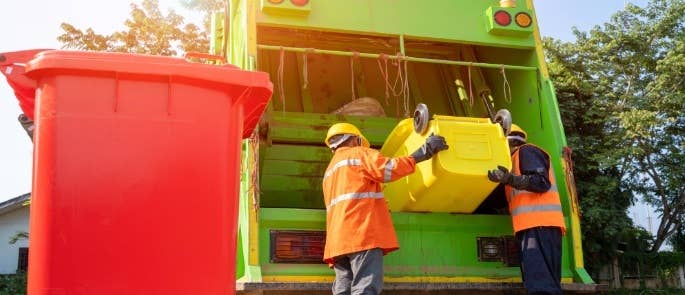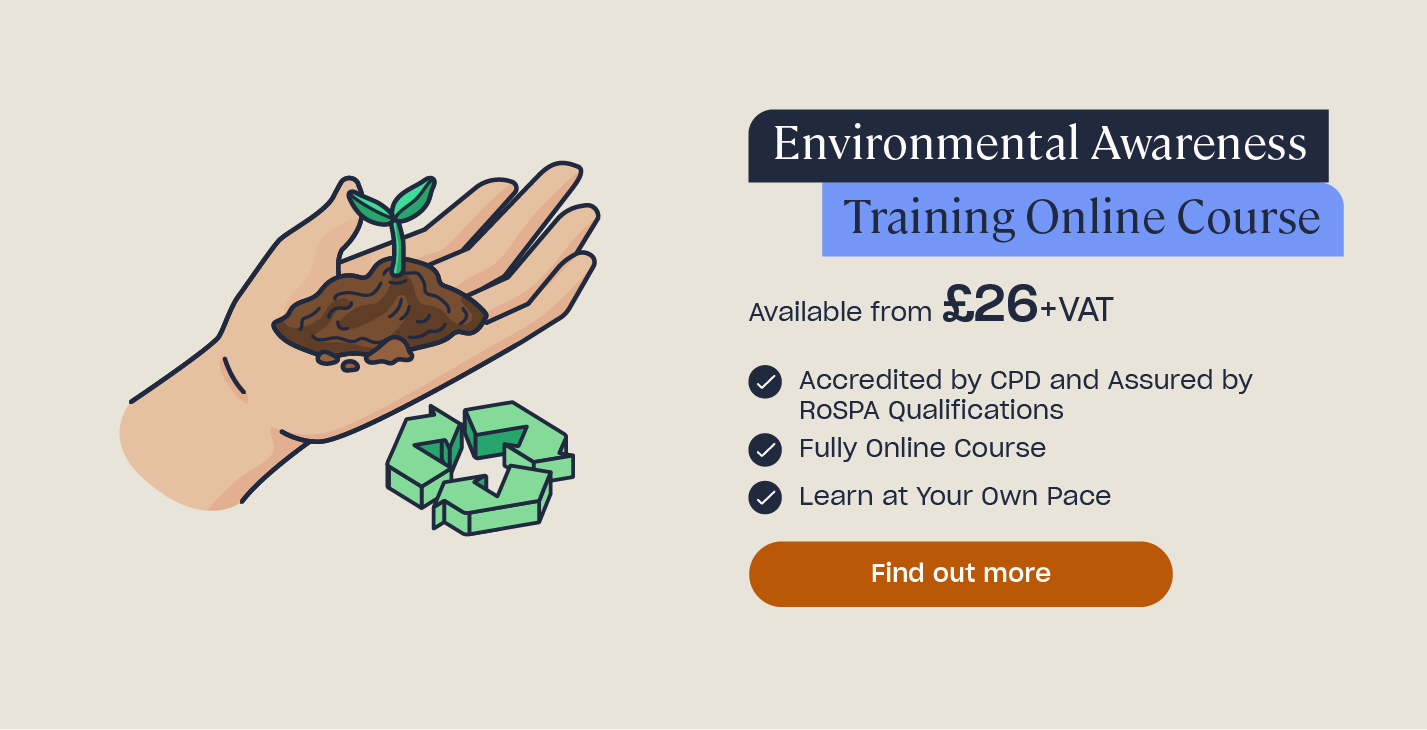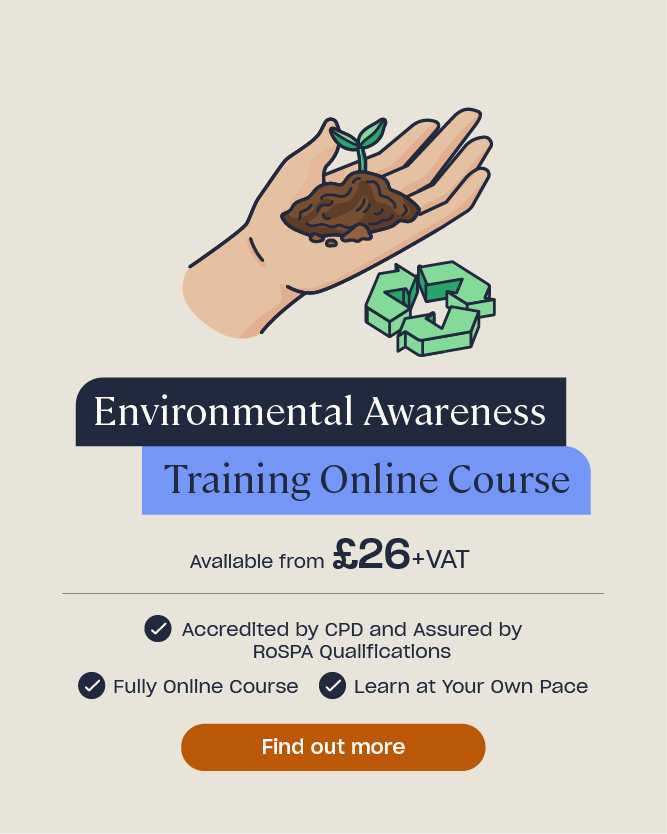Recycling in the Hospitality Industry: How & Why Should We Do it?
In 2016, the UK disposed of 52.3 million tonnes of waste as landfill. Collectively, the hospitality industry is responsible for contributing to this and so employers must put measures in place to limit the impact. One of the most effective ways of doing this is to recycle. Customers are increasingly taking environmental factors into consideration before they visit somewhere or purchase something. Therefore, it also makes economic sense to recycle and encourage sustainability.
This article explains the numerous benefits recycling is likely to have for your company. We also suggest five top recycling tips and the commercial recycling bins you may want to use.
Benefits of Recycling in the Hospitality Industry
There are countless benefits to recycling, both to the hospitality industry and in general. Doing so limits your environmental impact which, for some businesses, can be rather large if you frequently produce waste. Below, we have explained the benefits of recycling in the industry.
Environmental Impact
The main benefit of recycling is the environmental impact your actions will have. It requires much less energy to make a new product from recycled materials than it would to use all new materials. Aluminium cans, for example, require 95% less energy to manufacture if recycled aluminium is used. Recycling prevents materials such as plastic, glass and aluminium from ending up in landfill, where they can take up to 450 years to decompose.
Cost Effective
Reducing waste through recycling will have a positive impact on your business’s waste disposal costs. It is often cheaper to organise recycling collection than it is general waste. If you currently dispose of glass bottles with your general waste, this may be more costly due to the weight of the glass. By recycling instead, pubs, for example, can typically expect a waste reduction cost of up to 30%. Therefore, in situations such as this, it is likely that glass recycling will save you money.
Positive Company Image
As well as saving your business money and reducing your carbon footprint, recycling and sustainability will promote a positive company image. As the general public become more environmentally conscious, this may influence some people’s buying choices. If you market yourself as a company with a low carbon footprint due to your commitment to recycling, people may be more inclined to visit, as they are keen to support a business that is environmentally aware. Doing so may also improve the perception of your company on a local level.

How to Recycle in Your Business
Managing waste and setting up a recycling scheme can seem like a daunting, time-consuming task for you to implement in your business but it certainly doesn’t have to be. We have collated five top tips on how to recycle in your food business. These explain what steps you can take to ensure you recycle successfully.
1. Carry Out a Waste Audit
Firstly, you need to understand how much waste your business is creating. To do so, you should carry out a waste audit to identify what is regularly thrown into general waste. This will depend largely on the business. A restaurant, for example, will often use and dispose of materials such as glass bottles, plastic containers and aluminium drink cans. While a hotel may find that they are creating a substantial amount of cardboard and paper waste instead.
During the audit, you will need to monitor what is thrown away and the quantity of each material. This will allow you to draw conclusions and identify areas you could improve by reducing how much of a certain material you put in general waste, which ends up in landfill.
It is likely that one area you will identify will be the amount of food waste your business produces. Food waste management is an important factor to take into consideration. Although you will have inventory procedures in place to control the amount of waste, this will never guarantee that you don’t have to dispose of food for safety reasons. Instead of throwing safe food away, consider whether you can donate it to a charity to redistribute for human consumption. Look into organisations such as FairShare and the Felix Project to see whether this option is viable for your business.
Your business must also follow the correct procedures when disposing of cooking oil. The FSA state that if you produce waste oil, you must ensure it is stored and then disposed of correctly. You must never pour cooking oil down drains or sewers because it can cause blockages, bad smells and water pollution. Failure to follow these rules can result in prosecution. Therefore, used oil must be collected by an authorised collector, ideally by one who will take it to be properly recycled into biodiesel, a form of renewable energy.
You can find out more about food waste management in our article, ‘17 Ways to Reduce Food Waste in Your Restaurant’.
2. Meet the Legal Requirements
All businesses that produce waste have a legal responsibility to store and dispose of it in a safe manner. This prevents waste from causing pollution or harm to people or the environment. Recycling waste is the most secure method that largely avoids these threats. When choosing a waste provider, you must check that they hold a Waste Carriers Licence. You can do so on the Environmental Agency’s website. Using a provider with these credentials should reassure you that your waste is going to be disposed of or recycled correctly, rather than ending up as a hazard through fly-tipping etc.
3. Find a Recycling Waste Contractor
To help your business comply with the legal requirements, you should find a recycling waste contractor that meets your needs. During the audit you will have already determined what materials you waste a large quantity of. Use this information to identify areas where you can recycle more and reduce the waste you send to landfill. Consider the following:
- How much of each material do you dispose of in a certain period of time, e.g. 2 weeks?
- Do you produce enough recyclable waste to warrant recycling bins at your premises? If you produce a small amount of something, such as Tetra Pak packaging, it may be more cost effective to drop it off at a facility yourself. Many local councils accept recycling such as Tetra Pak, so it’s worth checking whether this is an option first. Be aware that some recycling centres do not accept commercial waste at all, while others accept only certain types, or they may charge a fee.
- Do they offer separate recycling of each material (glass, paper, plastic, etc.), is it mixed or are some materials excluded?
4. Consider the Location of the Recycling Containers
Once you’ve arranged a recycling waste contractor, you need to determine where you will place the containers. For ease, you may have chosen both indoor and outdoor bins at your premises. Consider where employees will create particular types of waste and put the appropriate bin nearby. So, having a glass bin behind a bar should be a visual reminder that will encourage employees to place glass here straight away.
Crucially, you must consider how the placement of the bins could affect health and safety. Depending on the organisation, this may particularly be the case in terms of food hygiene. You should avoid keeping a general waste or food waste bin close to where food is prepared. Instead, store it somewhere that remains easily accessible, but will not compromise food safety standards. It is also essential that the recycling waste contractor can easily reach your external containers. Often, they have large vehicles to transport the waste, so they need to be able to drive these close to where the bins are located.
5. Ensure Staff are Trained and Involved
It’s all well and good having implemented recycling procedures and bins, but they are pointless if your staff don’t know how to use them or understand why they are important. Therefore, you need to successfully involve staff and provide them with proper training. One way to do this is by putting posters up near general waste bins to remind staff to check what they are about to put in it can’t be recycled instead. Similarly, you could provide the information on what can go in which bin on a poster stuck to the relevant bin, and distribute it to staff through email.
As well as this, you need to encourage staff to be invested in the recycling scheme and work towards reducing the business’s harmful impact. One way to achieve this is to explain to them why the company is putting recycling measures in place and what will happen to the waste once it has left the premises. It will be beneficial to train all members of staff with an environmental awareness course to help them to understand why recycling and minimising waste is so important. You can access High Speed Training’s Environmental Awareness course, here.

Commercial Recycling Bins: Which One Should I Be Using?
The types of commercial recycling bins you have will depend on your individual business needs. Following a waste audit and your considerations, you should have some understanding of what your company requires. To help, we have summarised the different ones available that you may want to consider using.
Food Recycling
- Food waste can be very heavy, meaning it costs you a lot to dispose of in general waste.
- Instead, recycling food is an option that will cut disposal costs.
- Often, the food waste is converted to biogas or biofertiliser through the process of anaerobic digestion (AD). Biogas can be transformed into renewable energy, while biofertiliser is used on farmland to grow crops. Both methods recycle the otherwise discarded food waste, providing an alternative to the production of new energy or fertiliser.
General Waste
- This includes any waste that cannot be recycled, such as certain types of plastic.
- Some commercial waste providers recycle general waste instead of disposing of it as landfill. It can be turned into energy through the process of incineration, and is often a cheaper alternative to the usual waste disposal method of straight to landfill.
Mixed Recycling
- The type of mixed recycling will depend on which provider you choose and the service provided by your local council.
- It may include a combination of recyclable materials such as paper, plastic, tin and Tetra Pak.
- After your mixed recycling is collected, it is separated and will then be used to make new products.
Glass Recycling
- Alternatively, instead of mixed recycling you may wish to have separate bins for each material.
- Bars and restaurants are likely to produce a large quantity of waste glass. Therefore, it may be easier to simply have a separate bin for glass recycling.
- Your collector will take the contents of glass bins to a facility that recycles glass. Once here, it may be broken down to then be used in the manufacturing of new glass products.
Paper and Cardboard
- Your company may produce a significant amount of waste paper or cardboard, as opposed to much glass or plastic. Instead of mixed recycling bins, you may find a separate paper and cardboard bin more suitable for your needs.
- Cardboard can be recycled into new cardboard or packaging materials.

As well as the positive environmental impact, recycling and managing waste will have numerous benefits for your company. Businesses within the hospitality sector have the potential to create a huge amount of waste that often ends up in landfill. But by training your employees and colleagues in the importance of recycling and the impact it can have, your company will be seen as sustainable and environmentally conscious, an image which consumers are increasingly seeking out.
What to Read Next:
- Plastic Packaging Symbols: What Do They Mean?
- The Importance of Corporate Social Responsibility for Your Business
- Making Environmental Awareness a Priority in Your Workplace
- Sustainable Food Practices: Choices & Importance
- How to Implement Corporate Social Responsibility in Your Small Business
- How to Improve Sustainability in Restaurants







